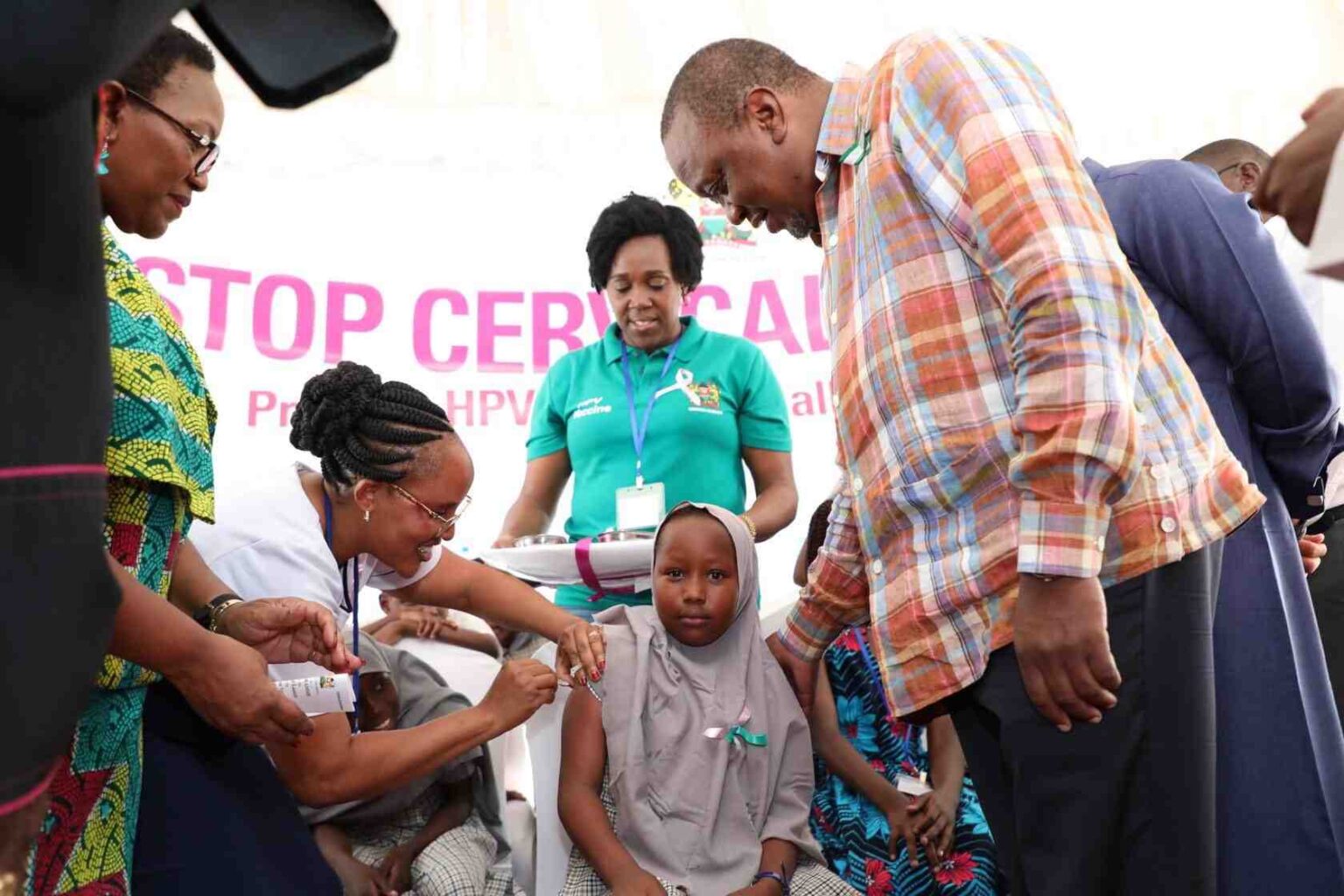Annually, the world observes cervical cancer awareness month in January, creating awareness of the prevention and importance of the HPV vaccine.
With the theme “Ending Cervical Cancer within a Few Generations,” the 2023 campaign seeks to raise awareness about cervical cancer and Human papillomavirus (HPV) vaccination among girls and boys.
HPV types 16 and 18 are responsible for about 70% of all cervical cancer cases worldwide.
Africa and Kenya Data
In Africa, 2020 estimates indicate that about 117,316 new cervical cancer cases are diagnosed annually. Furthermore, it is the second most common female cancer in African women aged 15 to 44.
In Kenya, 16.2 million women aged 15 and older are at risk of developing cervical cancer. According to the Ministry of Health, 5236 cases of cervical cancer are diagnosed in the country each year, with 3211 deaths accounting for 7% of overall national mortality.
The World Health Organization (WHO) says cervical cancer can be treated if detected early and managed effectively.
One of the best ways to prevent and control the disease is to increase the uptake of HPV vaccination among young girls and boys.
“Increasing vaccine access could save thousands of lives. Vaccination against HPV, screening, and treatment of pre-cancer lesions is a cost-effective way to prevent cervical cancer,” the WHO said.
However, WHO says only one in 10 girls are fully vaccinated against HPV globally, even though 95 per cent of cervical cancer cases result from HPV.
Almost five years after Kenya launched the HPV vaccine on October 18, 2019, the country has not achieved the target of fully vaccinating 800,000 girls every year.
The Ministry targets eliminating cervical cancer as a “public health problem” by achieving the 90-70-90 targets by 2030: 90% of girls fully vaccinated with the HPV vaccine by the age of 15 years; 70% of women screened with a high precision test at 35 and 45 years of age and 90% of women identified with cervical disease receiving treatment and care.
National Cancer Institute CEO Dr Alfred Karagu states that cervical and breast cancer still accounts for up to 23 per cent of all cancer-related deaths in Kenya.
This is attributed to the limited access to these measures, especially in low and middle-income countries such as Kenya.
As such, cervical cancer is usually detected at late stages when it has advanced, and symptoms have developed.
“In addition, access to treatment of cancerous lesions such as cancer surgery, radiotherapy and chemotherapy may be limited, resulting in a higher rate of death from cervical cancer in these countries,” says WHO.
Who Should Get the HPV Vaccine?
The HPV vaccine is usually given in two doses six months apart when a girl is between 9 and 14 years old, according to WHO.
The vaccine is administered in about 9000 public, private, and faith-based health facilities in Kenya.
“With a comprehensive approach to prevent, screen and treat, we can end cervical cancer as a public health problem within a few generations,” WHO emphasises.
Addressing Inequities in Breast Cancer Treatment in SSA: Dr Miriam Mutebi
For more Healthcare news, follow us on Instagram | Twitter| Facebook| LinkedIn



